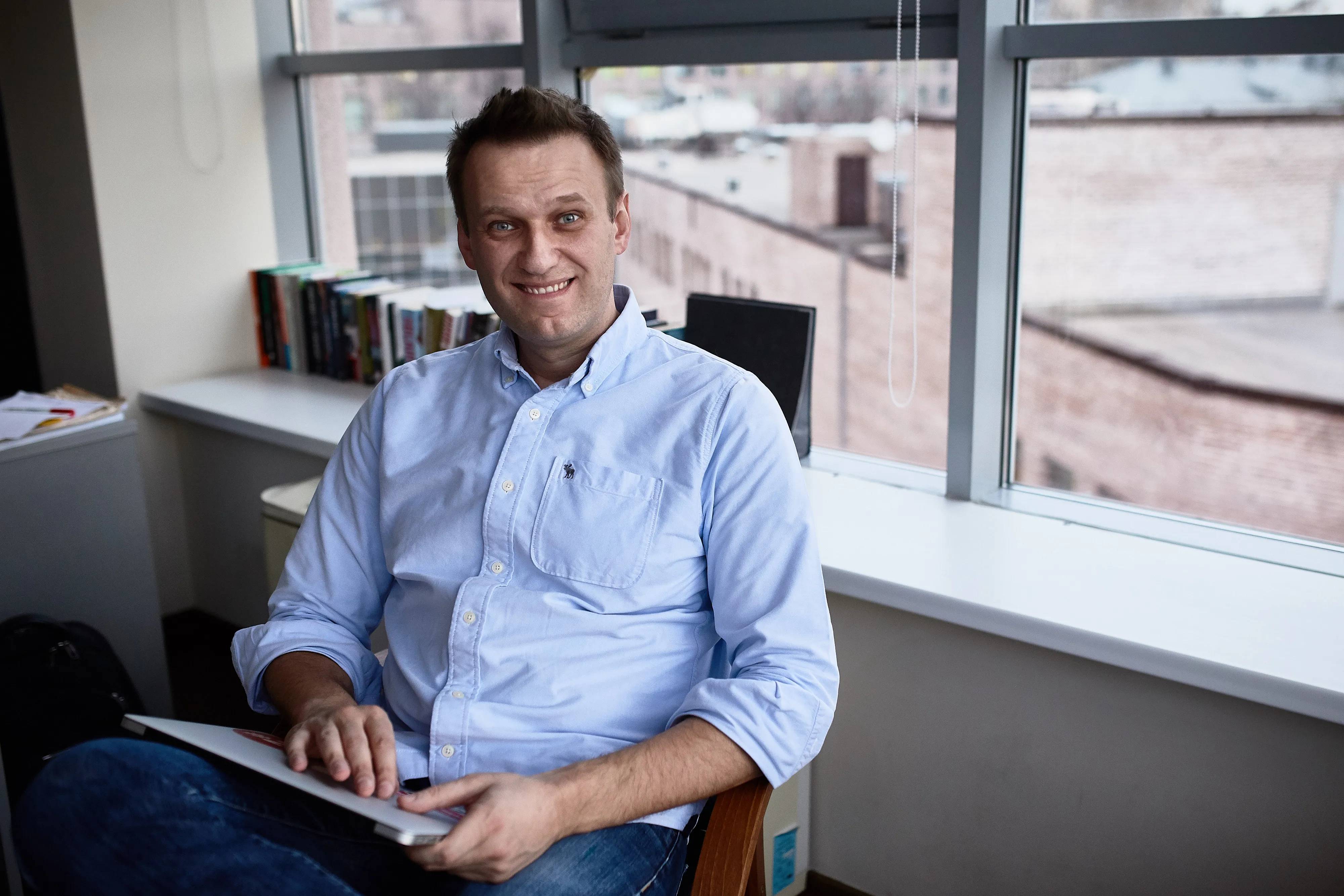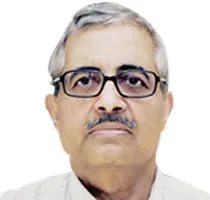Russia had its fair share of internal and foreign upheavals in 2020 — the novel coronavirus pandemic, the consequent economic downturn, the controversial arrest of a regional governor, the developments in Belarus, Kyrgyzstan, Moldova and Nagorno-Karabakh. But 2021 brought to focus another troubling event of the previous year: the tribulations of anti-Putin activist Alexei Navalny, which leave many questions unanswered.
A saga, European sanctions
The saga began on August 20 last year with Mr. Navalny falling ill on a flight to Moscow. His flight made an emergency landing at Omsk where Mr. Navalny was initially hospitalised and treated. He was, at the request of his wife, taken to Germany where he completed his treatment and had a miraculous recovery from what has emerged to be a near lethal poisoning.
The latest instalment of this story was Mr. Navalny’s detention on arrival from Berlin (January 17, 2021) and the subsequent country-wide public protests on Saturday (January 23). The charges against Mr. Navalny, include an old case in which he received a suspended sentence and a new case of fraudulent use of public money. Mr. Navalny denies all charges.
The protests this time
The protests demanding his release, while not the largest seen in Russia, were widespread, occurring in every major city, from the Pacific coast to the Baltic Sea; they resulted in about 3,000 people being detained and released.
What does stand out, however, is that people from various strata and age groups joined the mostly peaceful protest actions. Normally, Navalny-related demonstrations attract primarily youth (15-25 years old).
That others joined the protest this time is significant. It is probably a reflection of the deep disillusionment with the drop in living standards sparked off by years of Ukraine-related sanctions and lower energy prices, and worsened by the pandemic-driven economic downturn. This should worry the government even if Mr. Navalny himself is not causing them sleepless nights, although his call for ‘smart voting’ in the forthcoming parliamentary elections — all opposition voting for one person against the ruling party candidate — might.
Political targets
Mr. Navalny till the poisoning was a fringe political actor, mainly active in Moscow. His political career started with the liberal opposition party, Yabloko, in the early 2000s. He subsequently broke away to form his own nationalist group. His anti-corruption campaigns began in the late 2000s when as a shareholder of large companies such as Rosneft, Gazprom, he tried to seek greater transparency about their financial dealings.
He followed this up with several exposés of key members of the Russian elite. Prominent among them are government officials (Igor Shuvalov, Alexander Bastrykhin, Viktor Zolotov) and oligarchs (Viktor Vekselberg, Roman Abramovich and Alisher Usmanov). All of them have denied the charges. His subsequent investigations have targeted Dmitry Medvedev, the former President and Prime Minister. The latest, now viral exposure, targets Russian President Vladimir Putin himself, although the charge of him owning a plush palace being built with government money in Southern Russia is not new and has been denied earlier.
Earlier, Mr. Navalny’s presence was primarily online, barring sporadic street protests and his campaign for the Mayorship of Moscow. Some analysts have suggested that Mr. Navalny was used as a tool in the internal battles among the elites. This is not difficult to believe because some of the information that Mr. Navalny uses in his anti-corruption campaigns would be difficult, actually impossible, to find in publicly available sources. This kind of knowledge would have to come from someone not just inside, but very high-up in the system.
Divided opinion
The anti-regime protests expectedly sparked off varying reactions from analysts. Some suggest that these are the beginning of serious moves for regime change, while others call them a storm in a teacup. Surprisingly, the most pro-government TV anchor, Dmitry Kiselyov, chose to compare Mr. Navalny’s return from Germany to a similar journey in 1917 in a sealed train by iconic Bolshevik leader (Vladimir Ilyich Ulyanov) Lenin — the precursor to the October revolution of that year.
Whatever Mr. Kiselyov’s reasoning, Mr. Navalny is no Lenin, even if the protests for his release continue. It is clear that now, Mr. Navalny will have a more prominent role in Russian politics and is likely to emerge as the darling of the western media — although, Moscow-based western media correspondents are less ebullient and more cautious in their assessments of Mr. Navalny and his future role.)
Churn among the elites
Mr. Navalny, notwithstanding the euphoria of the moment, is unlikely to be the catalyst that will lead to “regime change” in Russia. His nationalist platform is not currently capable of appealing to all sections of Russian society or convincing the political opposition to coalesce around it. He is simply not in the same league as Mr. Putin and several other leaders but could, for the time being, serve as the lightning rod for the people to register their disaffection with the regime’s policies.
While India may not be waiting with bated breath for “regime change” in Russia, it is important to recognise that the shadow boxing taking place through Mr. Navalny is an indication of serious churn among the Russian elites. In Russia historically, barring once, change usually begins in the upper echelons of power.
This commentary originally appeared in The Hindu
The views expressed above belong to the author(s). ORF research and analyses now available on Telegram! Click here to access our curated content — blogs, longforms and interviews.

